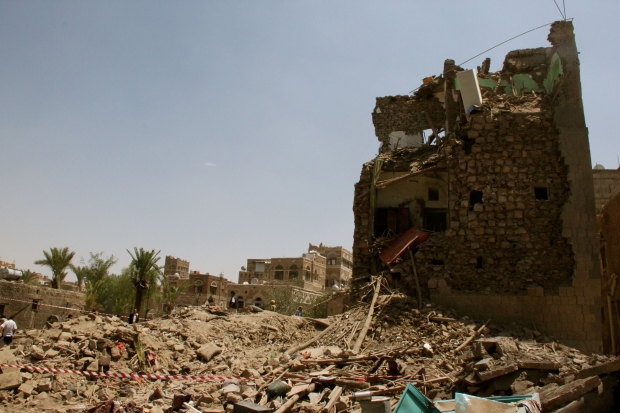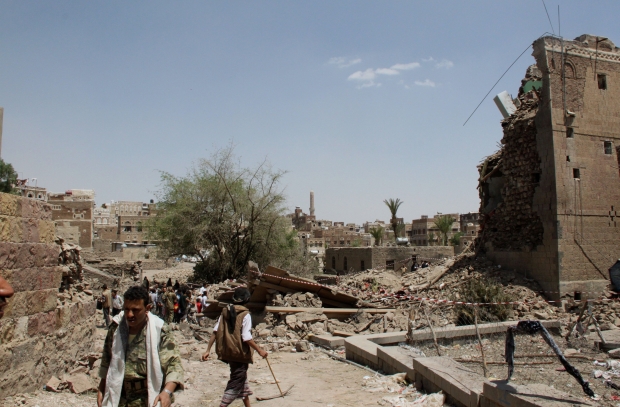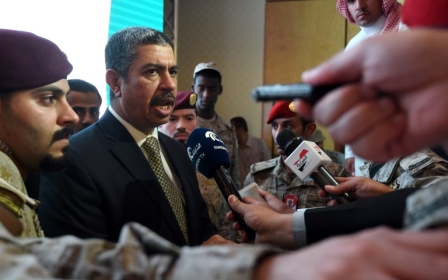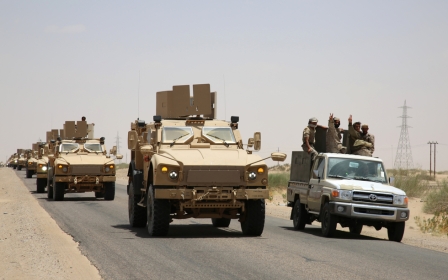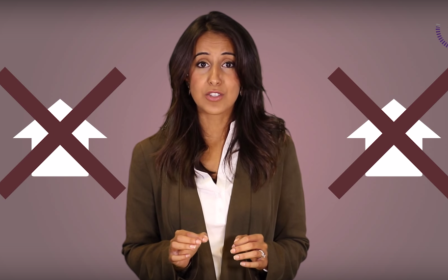UNESCO sites in Yemen under threat
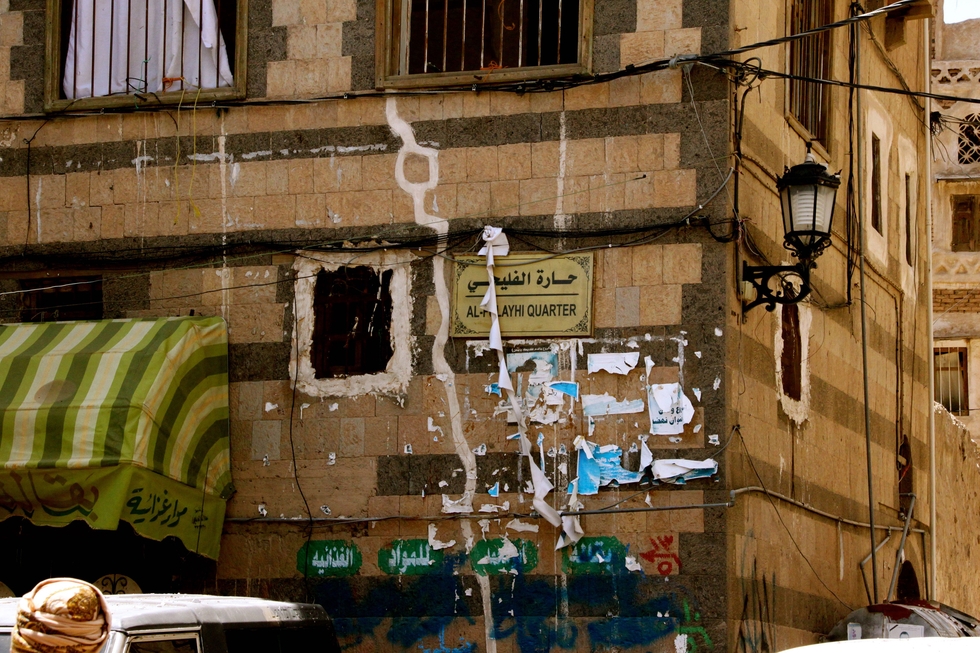
SANAA - As the evening drew to a close, Sanaa’s resident described Friday night as one of the "worst", as Saudi warplanes pummeled multiple locations across the capital.
In Old Sanaa, residents have been transfixed by a second attack on the UNESCO listed site after the first in June ravaged three buildings in the Al Qassimi quarter.
Windows rattled, children wept and loud explosions were heard throughout the night.
Several other areas in the capital were simultaneously hit, including the Interior Ministry, the Guards of Honor camp in Al Zubairy Street, Oman Ambassador’s residence and the UNESCO-listed residential neighborhood Fulayihi quarters.
Hitham Al Dhubaiby, living with his wife and 3-year-old in the vicinity of Al Zubairy, expressed shock when airstrikes hit the Guards of Honor camp.
“There are only musicians there. These people just play at official ceremonies. I’m not sure what was stored inside the camp,” he said.
Chewing qat – a drug that acts as a stimulant - and rifles strapped to their shoulder, Houthis soldiers manned the entry points around obliterated houses at Al Fuyaishi quarter on Saturday morning.
Pointing to rubble of one of the houses, Mohammed Assalem said 12 people died there, including women and children.
The Houthi-run Saba news agency estimated 30 civilian deaths and more than 120 injuries.
With the injuries pouring in after Friday night’s attacks, the Ministry of Health warned that hospitals are struggling to accommodate the injured. Electricity and water shortages have worsened since the start of the coalition strikes in March. While the war crumbles the country's healthcare facilities, UNOCHA estimates 15.4 million people are without access to basic medical needs.
Kamal Ali Mohammed, who runs a pashmina business in Old Sanaa, expressed bewilderment at the sounds and smell of the explosions from Friday night.
“It was 11.30pm, and then suddenly there was a big sound. And we knew it was from the planes circling above. You know UNESCO has been requesting to the Gulf countries not to touch our heritage, but it is only talk,” he said.
As Yemeni forces and the Saudi-led coalition advance in Yemen’s Marib, east of Sanaa, Mohammed expects the air raids to exacerbate.
“They [Saudi Arabia] will destroy everything. Also, they say they might hit Tabari school, because there are rumors there are weapons inside the school.”
Anna Paolini, UNESCO's representative for the Gulf countries and Yemen, said, “What happened in Sanaa, we don't know why the specific house and family. It is completely out of our hands.”
“Of course, it is disappointing this is the second deliberate attack of houses in Old Sanaa. Definitely, there is no assurance that it will not happen in future,” she added.
Meanwhile, UNESCO's director general Irina Bokova has sent multiple reminders to Saudi authorities to steer away from cultural sites. Despite Saudi’s advanced technology, Paolini said in war, and as seen in Iraq, there is never 100 percent precision in what they are targeting.
Still, Paolini said both sides have a shared responsibility to adhere to the 1954 convention for the Protection of Cultural Property in the Event of Armed Conflict. This means if the opposition [Houthis] uses the heritage sites for weapons storage, they will be targeted, she added.
Regardless, the attacks on Friday night angered many Old city residents who pride themselves on their unique culture and architectural heritage.
Abdel Hassan, waiting outside Al Thawra Hospital couldn’t tell from which side the planes were attacking.
“It felt like death was so near. To be alive with what is happening around us is a miracle,” he said.
Regarding the timing of the recent air war, Paolini said, “Unfortunately this happened after the incident in Marib where the coalition soldiers died, and since, there has been been an increase in the striking in retaliation. Both Balqees and Sanaa have been hit in less than a week.“
In the first week of September, 45 troops from the United Arab Emirates were killed in Marib while fighting with the Gulf countries against the Houthis.
“At the same time the coalition has very clearly said they are at war, and any heritage building hosting rebels or ammunitions will not be spared. This does not apply only to cultural heritage but also any other public infrastructure,” added Paolini.
Sanaa's local council denounced and called the attacks "barbaric agression" on Saturday. The statement issued on Saba Net agency emphasised the attack on Old City is not only an attack against Yemenis and their history and civilization but it is an attack against world history and heritage.
Yesterday, Oman’s foreign affairs ministry condemned the attack on the ambassador’s house, and issued a statement saying, "Oman received with deep regret yesterday's news targeting the ambassador's home in Sanaa, which is a clear violation of international charters and norms that emphasize the inviolability of diplomatic premises.”
Saudi’s coalition's military spokesman, Brigadier-General Ahmed al-Assiri, said the strikes were aimed at the Yemeni Interior Ministry building, not the Omani ambassador's residence, according to Reuters.
Stay informed with MEE's newsletters
Sign up to get the latest alerts, insights and analysis, starting with Turkey Unpacked
Middle East Eye delivers independent and unrivalled coverage and analysis of the Middle East, North Africa and beyond. To learn more about republishing this content and the associated fees, please fill out this form. More about MEE can be found here.


